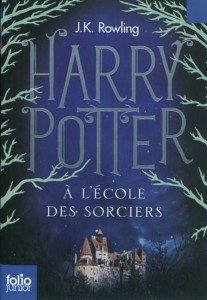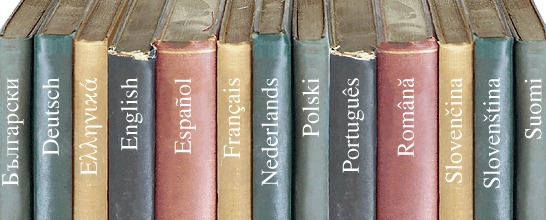Lost in Translation
[dropcap]P[/dropcap]hoebe Demeger discusses how reading a book in its original language gives you a connection with the author which is lost when a translator stands between you and encourages everyone to read books in their original language, even if you aren’t fluent!
I’ve heard it said that, when it comes to foreign cinema, there’s nothing like watching a film in its original language. The words match the setting, the lip movements match the words and, with the gracious help of subtitles, everything remains more or less understandable.
Things are somewhat complicated when we substitute cinema for literature. The problem with reading novels in their original language is that there’s not the luxury as subtitles. Subtitles for a book would translate to, well, a translated version.
[pullquote style=”right” quote=”dark”]However faithful to the original text the translator strives to be, there will always be another voice impeding on the narrative.[/pullquote]The principal issue with reading in translation is that, in every modern and ancient language, there are certain words and phrases that are simply untranslatable; any good-intentioned attempt to do so risks forsaking the charm, even the significance, of the original, thus creating an unbreachable gap between what the author – and especially poet – is trying to say and what is being communicated to you.
Ploughing head-on into a 500-page novel with no prior knowledge of the language, I hasten to add, will no doubt take its toll on the old grey matter, unless you have a hitherto unknown knack for picking up foreign tongues in the blink of an eye. Personally, before setting off on my Erasmus year to study English and Italian Literature, I was already significantly clued up on how to read, write, and speak Italian. Even so, despite having studied it for years I’d never quite succeeded in picking up a novel and reading it from cover to cover. Taking solely modules in Italian during my second term forced me into taking that jump. And I’m so glad I did.
[pullquote style=”right” quote=”dark”]Your connection with the words of the author, despite the language divide, will feel even stronger, as it’s truly their words which are shining through.[/pullquote]I discovered fairly swiftly that there were two possible methods for reading a novel in a language that is not your own. Option 1: sit down with a heavy-duty dictionary to hand and pore through every page in detail, sifting for every unknown word, keeping close track of exact tense, speaker, location etc. Option 2: whizz through with relative speed, as one would when reading in English, getting a sense of the action and only looking up a word if a) you had next to no clue what it meant and b) it seemed pretty integral to comprehension of the plot. Italo Calvino’s Il Sentiero Dei Nidi Di Ragno, for example, would have given me an awful lot of problems had I not looked up sentiero before beginning (note: it’s ‘pathway’).
While Option 1 initially seemed the best approach, especially when studying for exam texts that deserved to be fully understood, I found it to be nonetheless laborious, and not entirely rewarding. I’m not ashamed to admit – well, only slightly – that Option 2 was adopted once I released that I was running out of time to finish four modules’ worth of books before exam season. The skim-read, then, was born from necessity, but ultimately turned out to be the most effective strategy; I could get a sense of not only the plot, but the general flow and construction of the narrative. By for all intents and purposes ‘pretending’ I was reading in English, I managed to trick my brain into thinking it was reading something that it fully understood, thus ended up comfortably understanding it.
 So, if the option is available to you, why not check out books in their original language? For one thing, it does wonders for the brain, as does learning another language in itself. A friend of the family managed to single-handedly teach herself French by forsaking lessons and tackling the entirety of Harry Potter in translation from start to finish. Seven visits to Poudlard (that’ll be ‘Hogwarts’) later and she was all but fluent. Studying a language at school or university is all very well, but what better place to really put it into practise by taking on figurative language, narrative innovation, the ABC of how your favourite writers put their works together? I have spoken before of the problems inherent in translation: being your own translator cuts out the middle man; you are interpreting the author’s words at face value with no other external perspective clouding your own. And, if I’m being honest, there is a cheeky intellectual thrill in being able to say “I read Primo Levi’s Se Questo È Un Uomo in the original Italian and understood it”, if being cheeky and intellectual floats your boat.
So, if the option is available to you, why not check out books in their original language? For one thing, it does wonders for the brain, as does learning another language in itself. A friend of the family managed to single-handedly teach herself French by forsaking lessons and tackling the entirety of Harry Potter in translation from start to finish. Seven visits to Poudlard (that’ll be ‘Hogwarts’) later and she was all but fluent. Studying a language at school or university is all very well, but what better place to really put it into practise by taking on figurative language, narrative innovation, the ABC of how your favourite writers put their works together? I have spoken before of the problems inherent in translation: being your own translator cuts out the middle man; you are interpreting the author’s words at face value with no other external perspective clouding your own. And, if I’m being honest, there is a cheeky intellectual thrill in being able to say “I read Primo Levi’s Se Questo È Un Uomo in the original Italian and understood it”, if being cheeky and intellectual floats your boat.
My intention here is not to coerce the reader into immediately binning their Dante, their Dostoevsky and their de Beauvoir in protest of the foul philistinism of the translator. But what I will say is this: if you have a favourite foreign author or book, I encourage you to seek out a cheap copy, original language intact, and give it a read.

Comments